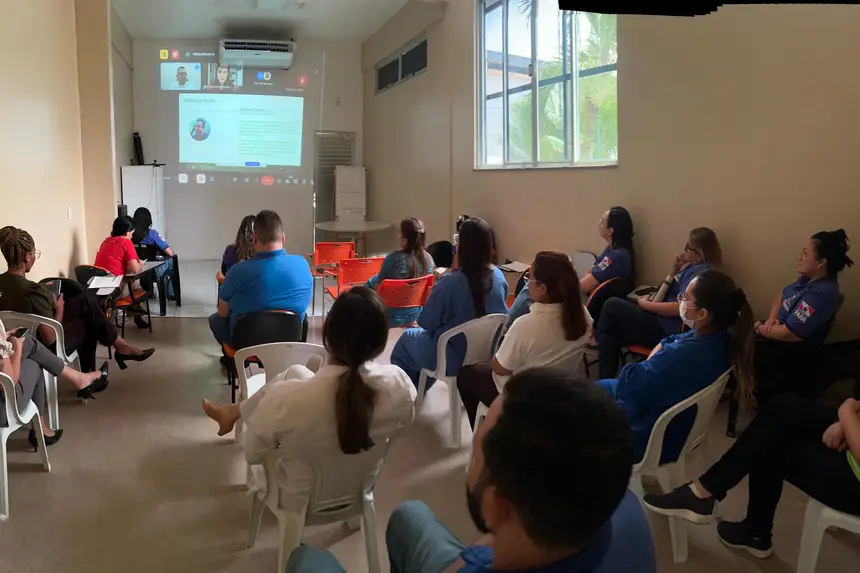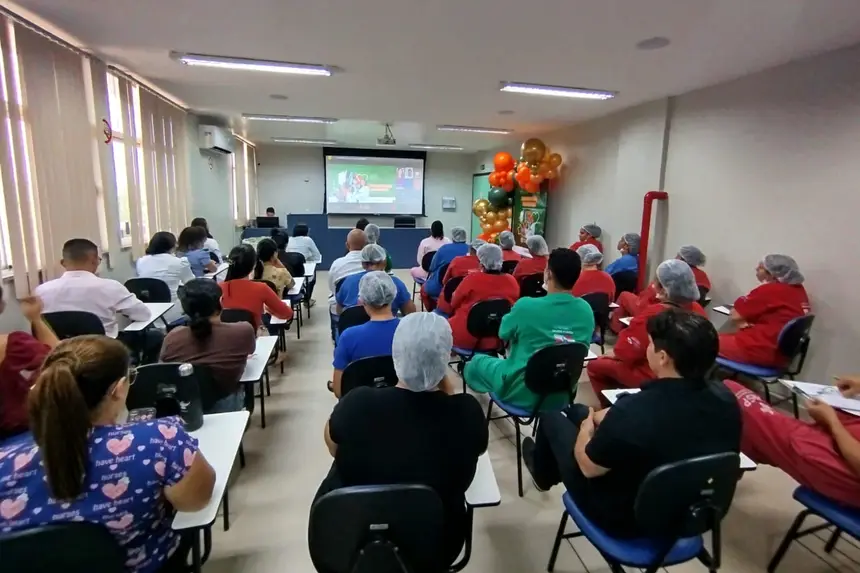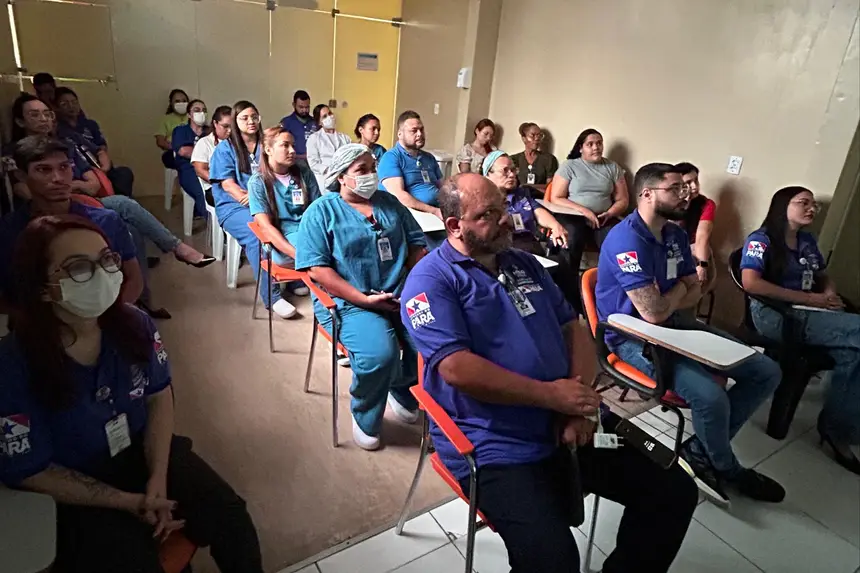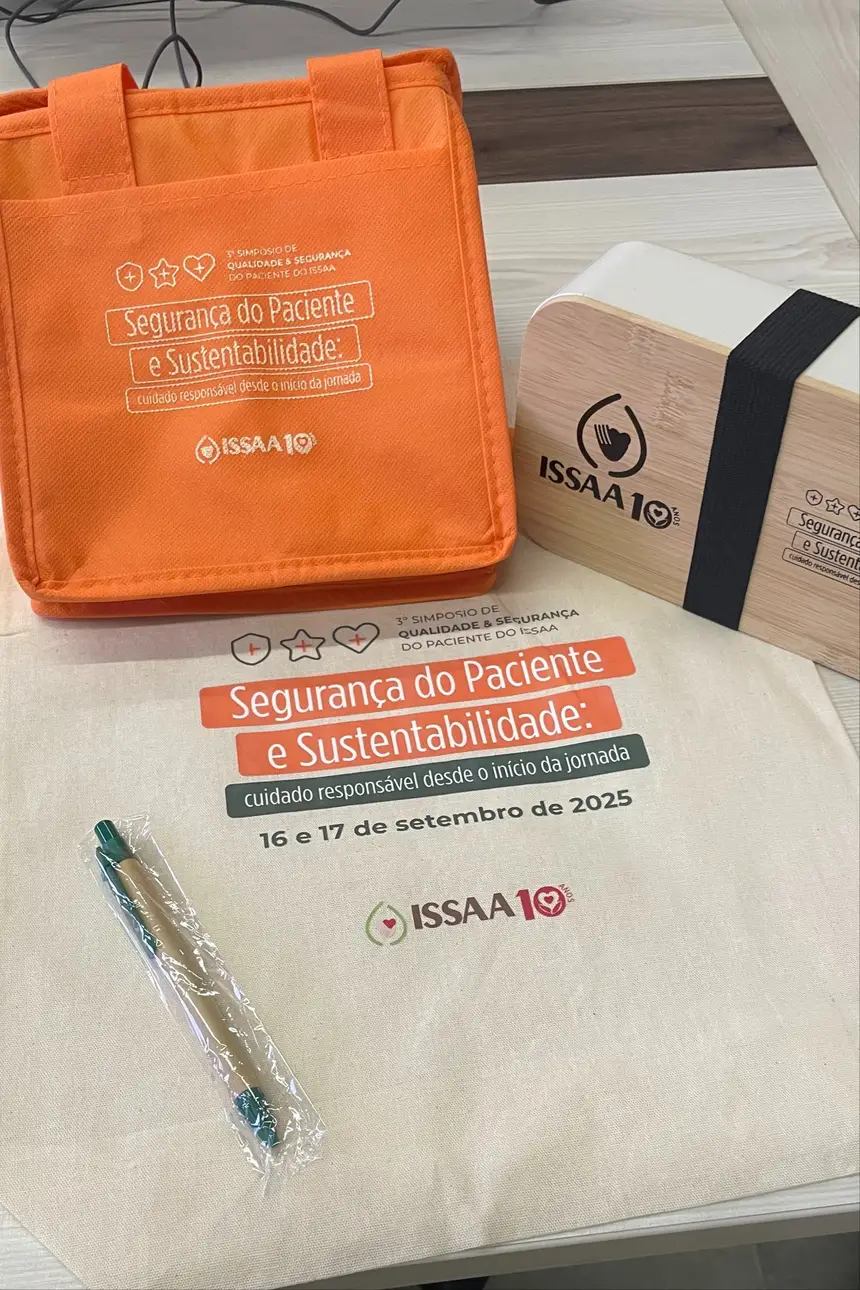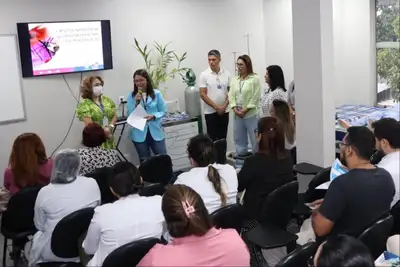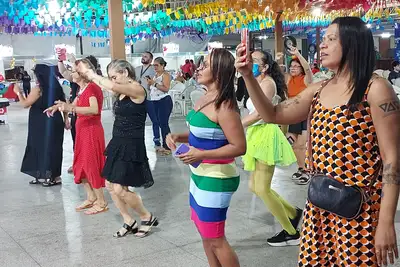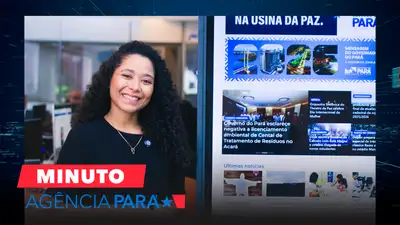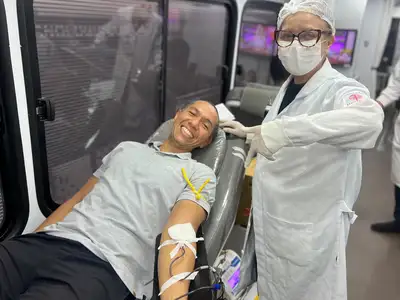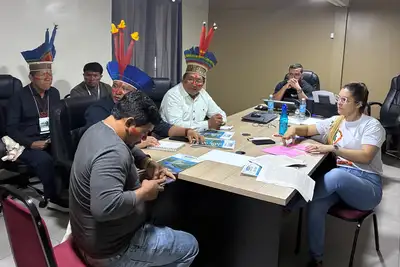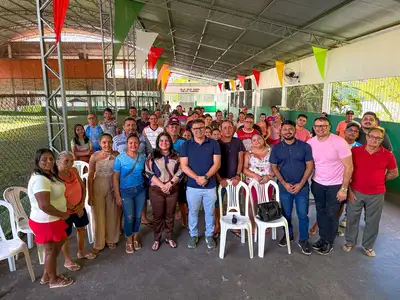State Health Units Highlight Advances in Quality and Patient Safety
The event brought together five public health institutions from Belém, Marabá, and Tucuruí, over two days of discussions on management, sustainability, innovation, and humanization.
By connecting experiences and knowledge, the III Symposium on Quality and Patient Safety concluded its program this Wednesday (17), integrating an intense agenda of debates on sustainability, innovation, and humanization. Held online and simultaneously, the event was opened on Tuesday (16), bringing together five public health units from Pará over two days of activities.
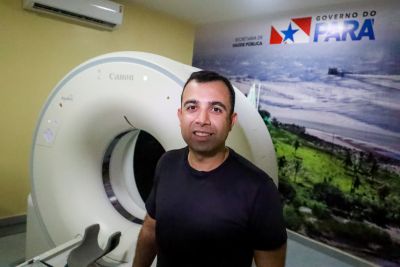
The Symposium was opened with a keynote lecture led by Dr. Sipriano Ferraz, president of the Gaspar Vianna Hospital Clinics Foundation (FHCGV), who highlighted the importance of management in health. "The future of health depends on good management, with preparation, vision, and commitment. Good managers strengthen teams and ensure that care reaches the patient with quality, always with responsibility, humanity, and efficiency," he emphasized.
The initiative was promoted by the health units of the Government of Pará managed by the Institute of Social and Environmental Health of the Amazon (ISSAA), in partnership with the State Department of Public Health (Sespa), and included the participation of the Galileu State Public Hospital (HPEG), the Southeast Pará Regional Hospital (HRSP), the Metropolitan Polyclinic, the Marabá Polyclinic, and the Tucuruí Lake Polyclinic.
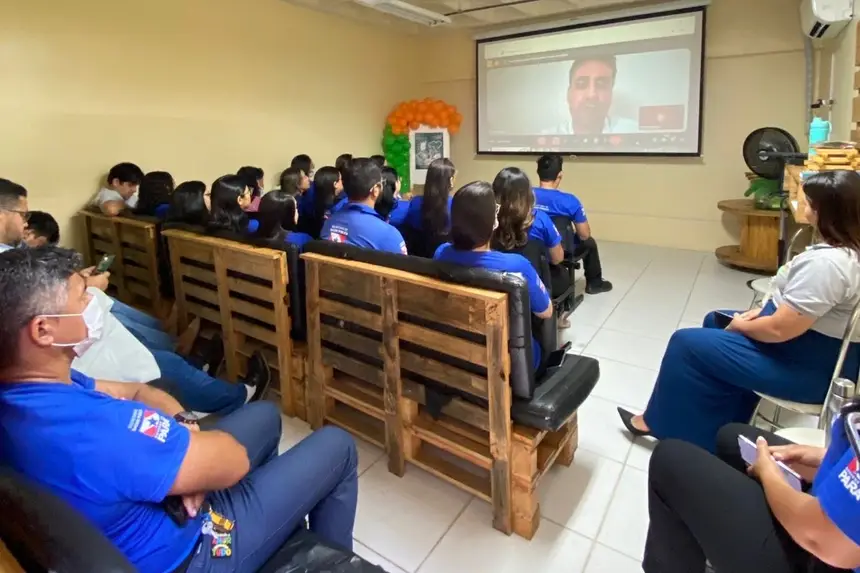
The administrative director of ISSAA, Rodrigo Moreira, stated that the Symposium consolidates important advances in public health. "It is a moment that reinforces the importance of good management, capable of aligning science and human care in favor of patient safety, with planning, efficiency, and innovation," he explained.
Innovation in Care - Another highlighted action was the lecture "Safe and Sustainable Pharmaceutical Assistance," presented by Julia Santos, who addressed the perspective of aligning pharmaceutical processes with socio-environmental responsibility. "Delivering value means caring for the patient, optimizing the institution's resources, and at the same time, preserving the environment, ensuring efficiency and responsibility at every stage of care," she emphasized.
The debate panel also featured Professor Danielle Saraiva, who works at the João de Barros Barreto University Hospital. She delivered the lecture "Risk Management and Sustainability: Challenges for Public Hospitals," and highlighted that "talking about risks is talking about prevention and preparation. Public hospitals need to integrate safety and sustainability so that the challenges of routine become opportunities for continuous improvement."
Science and Sustainability - The scientific production of professionals from the state network was highlighted at the Symposium. Sixteen works were presented, developed by professionals from the units in four thematic axes, which translate the main challenges and advances in public health in Pará.
The event also addressed waste management in health institutions, with a lecture by Professor Andrea Fagundes Ferreira Chaves from the State University of Pará (Uepa). "Managing waste is thinking about public health broadly, protecting professionals, patients, and the environment, with smart solutions that reduce risks and strengthen sustainability," she explained.
Another relevant topic was discussed by lawyer Marcelo Silva, a compliance specialist at ISSAA, in the lecture "Labor Compliance and Governance in Health." "When we align governance and legal responsibility, we create safer, more transparent, and humane institutions, capable of inspiring trust and strengthening the culture of care," he stressed.
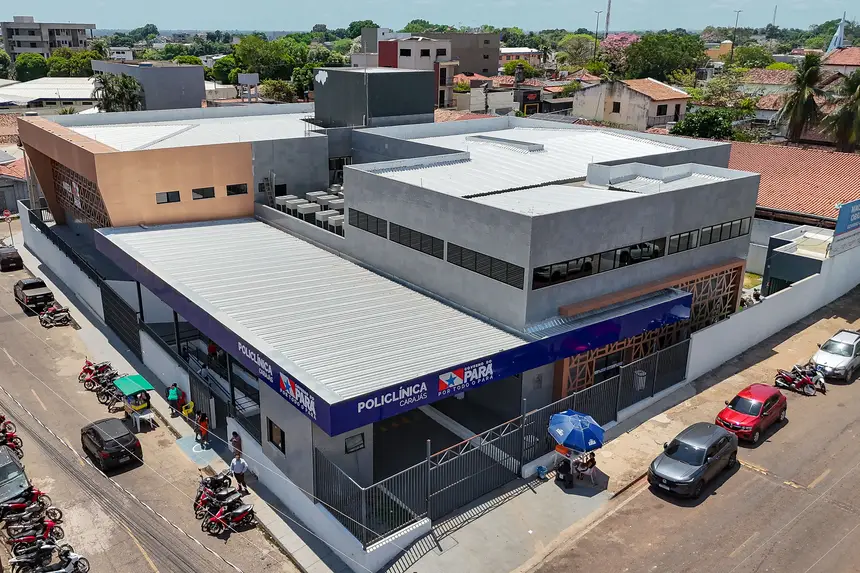
Impacts and Learnings - The repercussions of the Symposium highlighted the positive impact of the program. Alice Thaynara, administrative assistant at the Tucuruí Polyclinic in southeastern Pará, emphasized the learning provided. According to her, "the lectures brought practical and inspiring reflections, reinforcing the commitment to more humane, responsible, and sustainable health care."
For Kelly Christian da Costa Souza, quality nurse at the Metropolitan Polyclinic, the presentation of scientific works strengthened the culture of patient safety. "The initiative reinforces the importance of teamwork and shows that each developed project contributes to enhancing the safety and quality of care provided," she emphasized.
Marcela Lima, a quality nursing technician at the Galileu Hospital, highlighted the relevance of the meeting. For her, "it was a valuable opportunity for learning and contributing to the continuous improvement of processes, strengthening the safety and quality of care provided."
Saving Lives - Quality in care has repercussions, especially in care. Crisila Reis, a nurse working at the Regional Hospital in Marabá, said that "the Symposium reminds us that every action, no matter how small it seems, can save lives." According to her, the shared learnings reinforce the role of each professional in building a safer, more efficient, and humane public health system.
For Emilly Vitória, personnel administration analyst at the Carajás Polyclinic, she reinforced the impact of the meeting by stating that "it was learning that we carry for life, because each topic addressed showed that health is made with unity, care, and responsibility."



